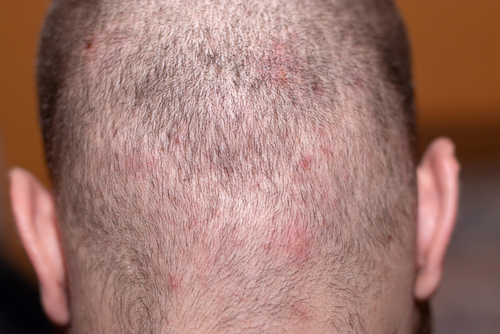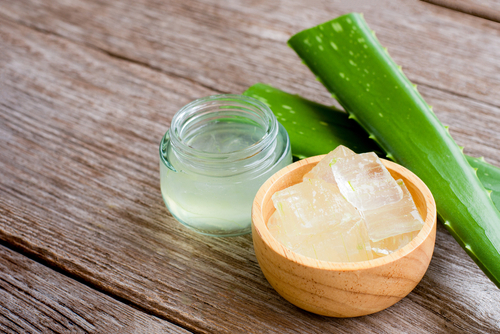
When Is the Right Age to Consider Hair Implants?
June 19, 2023
Types of Hair Loss, Causes, and Solutions
August 22, 2023How To Deal With Post-Hair Implant Itching

How To Deal With Post-Hair Implant Itching
How to Deal with Post-Hair Implant Itching. Undergoing a hair implant procedure is an effective way to restore hair growth and regain confidence.
However, after the procedure, some individuals may experience itching in the scalp, which can be bothersome.
In this article, we will explore the causes of post-hair implant itching and provide practical tips on how to deal with this temporary discomfort for a smooth recovery process.
Understanding the Causes of Post-Hair Implant Itching
Before diving into the solutions, it is essential to understand the underlying causes of post-hair implant itching.
The following factors contribute to this temporary discomfort:
- Healing Process
- Hair implantation involves making tiny incisions in the scalp to place the hair follicles.
- Hair implantation involves making tiny incisions in the scalp to place the hair follicles.
- Sensitivity and Irritation
- The scalp can become sensitive and irritated after a hair implant procedure.
The insertion of hair follicles, local anesthesia, and post-operative medications may cause temporary irritation, leading to itching.
- The scalp can become sensitive and irritated after a hair implant procedure.
- Dry Scalp
- Following a hair implant procedure, the scalp may become dry due to the necessary aftercare instructions.
Dryness can trigger itching and discomfort, making it crucial to maintain proper scalp hydration.
- Following a hair implant procedure, the scalp may become dry due to the necessary aftercare instructions.
Tips to Manage Post-Hair Implant Itching

To alleviate post-hair implant itching and promote a smooth recovery process, consider the following tips:
Follow Post-Operative Care Instructions
Adhere to the specific post-operative care instructions provided by your hair implant specialist.
This may include guidelines on cleaning, moisturizing, and avoiding activities that can disrupt the healing process.
Following these instructions diligently helps minimize itching and ensures optimal recovery.
Avoid Scratching
Although it can be tempting, scratching the scalp should be avoided.
Scratching can lead to further irritation, disrupt the healing process, and potentially damage the newly implanted hair follicles.
Instead, gently pat or tap the itchy area to alleviate the discomfort.
Keep the Scalp Clean
Maintain proper scalp hygiene by following the recommended cleaning routine provided by your hair implant specialist.
Use a mild, non-irritating shampoo and lukewarm water to cleanse the scalp.
Avoid harsh products or vigorous scrubbing, as they can exacerbate itching and irritate the scalp.
Moisturize the Scalp

Apply a moisturizer or prescribed ointment to the scalp as directed by your hair implant specialist.
This helps keep the scalp hydrated, reducing dryness and minimizing itching.
Choose a product that is gentle, hypoallergenic, and specifically formulated for post-hair implant care.
Avoid Excessive Heat and Sun Exposure
Protect your scalp from excessive heat and sun exposure, as these factors can worsen itching and increase irritation.
Wear a hat or use broad-spectrum sunscreen when venturing outdoors, especially during peak sun hours.
Additionally, avoid hot showers, saunas, or any activities that cause excessive sweating, as they can further aggravate itching.
Use Cold Compresses
Apply a cold compress or ice pack wrapped in a cloth to the itchy areas of the scalp.
The cold temperature can help numb the area, provide temporary relief, and reduce the intensity of itching sensations.
Ensure that the compress is not too cold to avoid discomfort or potential damage to the scalp.
Consult Your Hair Implant Specialist
If the itching persists or becomes severe, consult your hair implant specialist for further guidance.
They can assess your condition, provide additional recommendations, or prescribe medication to alleviate itching and promote a smooth recovery.
Use Over-the-Counter Remedies
Over-the-counter remedies such as topical corticosteroid creams or ointments can provide temporary relief from itching.
These products contain anti-inflammatory ingredients that help reduce itching and irritation.
However, it’s important to consult your hair implant specialist or a healthcare professional before using any new product to ensure it is safe and appropriate for your specific situation.

Apply Natural Remedies
Some natural remedies can help soothe itchy scalps. Aloe vera gel, for example, has anti-inflammatory properties and can relieve itching.
Apply a small amount of pure aloe vera gel directly to the itchy areas of the scalp and leave it on for a few minutes before rinsing off.
Chamomile tea can also be a natural rinse to soothe the scalp and reduce itching.
Brew chamomile tea, allow it to cool, and then use it as a final rinse after shampooing.
Avoid Irritants
Certain irritants can exacerbate itching and prolong the healing process.
Avoid using hair styling products, such as gels, hairsprays, or mousses, during the initial recovery period. These products can irritate the scalp and trigger itching.
Also, avoid exposing your scalp to chlorine-treated water, which can cause dryness and itching.
If swimming is necessary, wear a swim cap to protect your scalp.
Manage Stress
Stress can contribute to itching and discomfort.
Engaging in stress-reducing activities, such as meditation, deep breathing exercises, or yoga, can help alleviate itching by promoting relaxation.
Prioritize self-care and find healthy ways to manage stress during the recovery period.
Stay Hydrated

Proper hydration helps moisturize the scalp, reducing dryness and itching.
Aim to drink at least 8 glasses of water per day to support optimal scalp hydration.
Avoid Scratching at Night
Itching can often be more intense at night, leading to scratching during sleep.
To prevent scratching and further irritation, consider wearing soft cotton gloves or a clean, soft towel to wrap your hands before bed.
This physical barrier can help prevent unintentional scratching while you sleep.
Remember, post-hair implant itching is temporary and part of the healing process.
With patience, proper care, and implementing these strategies, you can effectively manage the itching and promote a smooth recovery.
How To Deal With Post-Hair Implant Itching – Conclusion

Experiencing post-hair implant itching is a common occurrence during the recovery process.
By understanding the causes and following practical tips for managing this temporary discomfort, you can better navigate the healing phase.
Remember, patience and proper care are essential for a successful recovery and achieving optimal results from your hair implant procedure.
If you are experiencing persistent or severe itching that is causing significant discomfort, don’t hesitate to consult your hair implant specialist for personalized guidance and support.
With their expertise and your dedication to post-operative care, you can minimize itching and embark on the journey to a fuller, healthier head of hair.
With patience, proper care, and the support of your hair implant specialist, you can manage post-hair implant itching and look forward to enjoying the benefits of your restored hair with confidence.
Are you seeking a professional and reliable hair implant specialist in Singapore? Contact us today!




